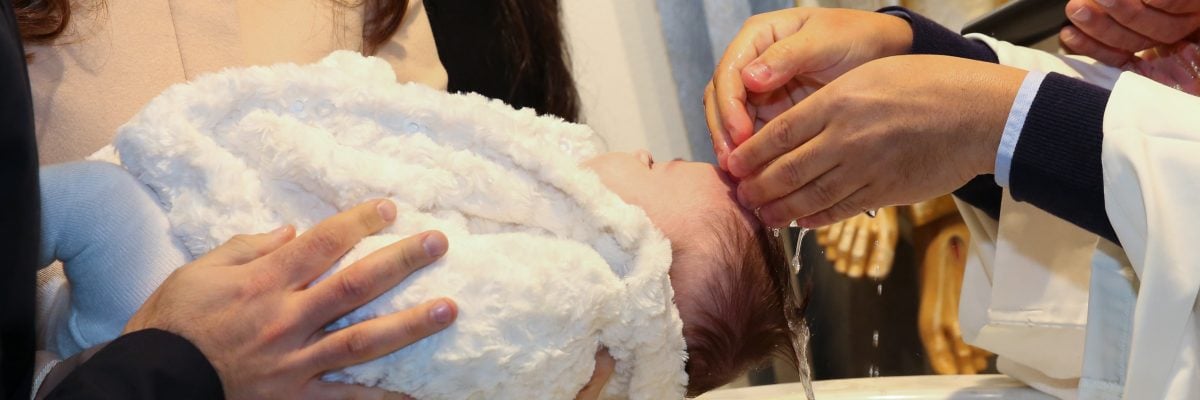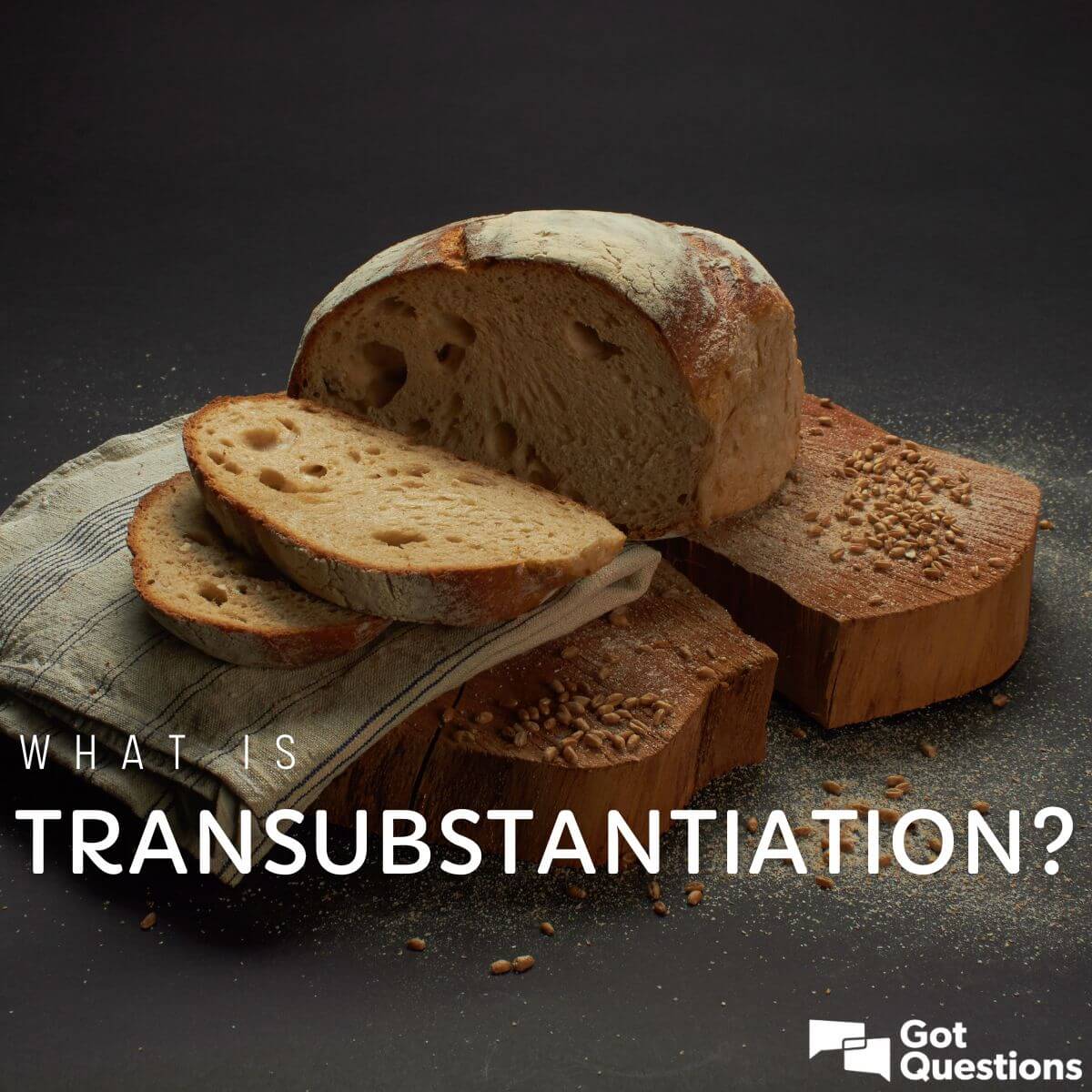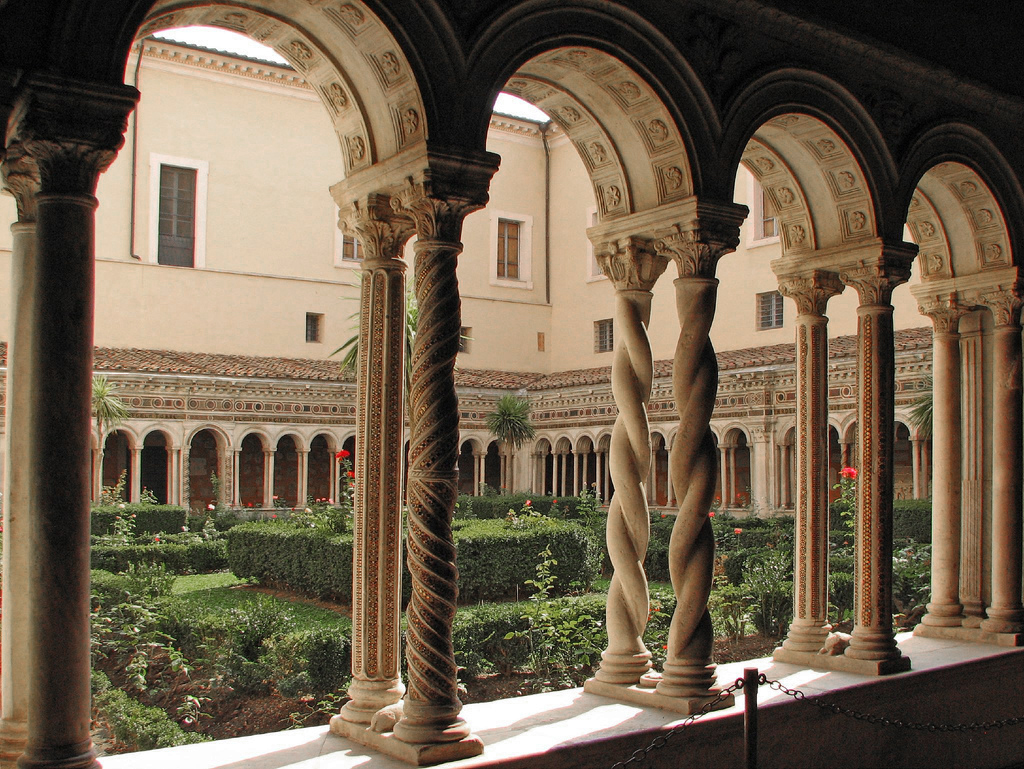-
Welcome to Baptist Board, a friendly forum to discuss the Baptist Faith in a friendly surrounding.
Your voice is missing! You will need to register to get access to all the features that our community has to offer.
We hope to see you as a part of our community soon and God Bless!
You are using an out of date browser. It may not display this or other websites correctly.
You should upgrade or use an alternative browser.
You should upgrade or use an alternative browser.
Vatican Reforms
- Thread starter Earth Wind and Fire
- Start date
These changes will garner a lot of positive response within the church and without. These impact the physical world while their spiritual blindness remains.
These changes will garner a lot of positive response within the church and without. These impact the physical world while their spiritual blindness remains.
Please be specific, what spiritual blindness are you referring to?These changes will garner a lot of positive response within the church and without. These impact the physical world while their spiritual blindness remains.
The doctrines of the RC reveal their spiritual blindness.Please be specific, what spiritual blindness are you referring to?
(Jhn 3:3 KJV) Jesus answered and said unto him, Verily, verily, I say unto thee, Except a man be born again, he cannot see the kingdom of God.
(Jhn 3:7 KJV) Marvel not that I said unto thee, Ye must be born again.
(Rom 6:3 KJV) Know ye not, that so many of us as were baptized into Jesus Christ were baptized into his death?
(Rom 6:4 KJV) Therefore we are buried with him by baptism into death: that like as Christ was raised up from the dead by the glory of the Father, even so we also should walk in newness of life.
Catholics teach that spiritual re-birth is a result of infant baptism:

Are Catholics Born Again?
Catholics and Evangelicals understand the term "born again" to mean something different. But who is right? We break it down for you.
When a Catholic says that he has been “born again,” he refers to the transformation that God’s grace accomplished in him during baptism.
In the water-and-Spirit rebirth that takes place at baptism, the repentant sinner is transformed from a state of sin to the state of grace.

Infant Baptism
Did Jesus intend baptism to be adminstered to infants? We defend this Catholic practice and give you some pointers on how you can explain it to others.
Opposition to infant baptism is not a new phenomenon. In the Middle Ages, some groups developed that rejected infant baptism, e.g., the Waldenses and Catharists. Later, the Anabaptists (“re-baptizers”) echoed them, claiming that infants are incapable of being baptized validly. But the historic Christian Church has always held that Christ’s law applies to infants as well as adults, for Jesus said that no one can enter heaven unless he has been born again of water and the Holy Spirit (John 3:5).

Does the Bible teach believer’s baptism/credobaptism? | GotQuestions.org
Does the Bible teach believer’s baptism/credobaptism? What is a credobaptist? Is baptism a step of obedience for believers after salvation?
www.gotquestions.org

What is transubstantiation? | GotQuestions.org
What is transubstantiation? Does the bread and the wine/juice literally become the body and blood of Jesus Christ?
www.gotquestions.org
In other words, the Roman Catholic Church teaches that once an ordained priest blesses the bread of the Lord’s Supper, it is transformed into the actual flesh of Christ (though it retains the appearance, odor, and taste of bread); and when he blesses the wine, it is transformed into the actual blood of Christ (though it retains the appearance, odor, and taste of wine).

Is worship of saints / Mary biblical? | GotQuestions.org
Is worship of saints / Mary biblical? Why do Roman Catholics believe in the worshiping the saints and Mary?
www.gotquestions.org
The doctrines of the RC reveal their spiritual blindness.
(Jhn 3:3 KJV) Jesus answered and said unto him, Verily, verily, I say unto thee, Except a man be born again, he cannot see the kingdom of God.
(Jhn 3:7 KJV) Marvel not that I said unto thee, Ye must be born again.
(Rom 6:3 KJV) Know ye not, that so many of us as were baptized into Jesus Christ were baptized into his death?
(Rom 6:4 KJV) Therefore we are buried with him by baptism into death: that like as Christ was raised up from the dead by the glory of the Father, even so we also should walk in newness of life.
Catholics teach that spiritual re-birth is a result of infant baptism:

Are Catholics Born Again?
Catholics and Evangelicals understand the term "born again" to mean something different. But who is right? We break it down for you.www.catholic.com
When a Catholic says that he has been “born again,” he refers to the transformation that God’s grace accomplished in him during baptism.
In the water-and-Spirit rebirth that takes place at baptism, the repentant sinner is transformed from a state of sin to the state of grace.
Since the New Testament era, the Catholic Church has always understood baptism differently, teaching that it is a sacrament which accomplishes several things, the first of which is the remission of sin, both original sin and actual sin—only original sin in the case of infants and young children, since they are incapable of actual sin; and both original and actual sin in the case of older persons.
Infant Baptism
Did Jesus intend baptism to be adminstered to infants? We defend this Catholic practice and give you some pointers on how you can explain it to others.www.catholic.com
Opposition to infant baptism is not a new phenomenon. In the Middle Ages, some groups developed that rejected infant baptism, e.g., the Waldenses and Catharists. Later, the Anabaptists (“re-baptizers”) echoed them, claiming that infants are incapable of being baptized validly. But the historic Christian Church has always held that Christ’s law applies to infants as well as adults, for Jesus said that no one can enter heaven unless he has been born again of water and the Holy Spirit (John 3:5).
Believer’s baptism is distinguished from infant baptism in that an infant, who has no understanding of the gospel, cannot be a “believer” in Christ. Believer’s baptism involves a person hearing the gospel, accepting Christ as Savior, and choosing to be baptized. It is his or her choice. In infant baptism, the choice is made by someone else, not the child being baptized. Those who baptize infants often teach that water baptism is the means by which the Holy Spirit is imparted to an individual. They base this idea primarily upon Peter’s words in Acts 2:38: “Repent and be baptized, every one of you, in the name of Jesus Christ for the forgiveness of your sins. And you will receive the gift of the Holy Spirit.” Those who hold this doctrine believe that the act of baptizing an infant sets the child apart and secures salvation. Nowhere in Scripture is the practice of infant baptism even implied. Some point to the few references of the apostles baptizing “households” (Acts 11:14; 16:15, 33), with the assumption that the households included infants, but this is going beyond what the text says.
Does the Bible teach believer’s baptism/credobaptism? | GotQuestions.org
Does the Bible teach believer’s baptism/credobaptism? What is a credobaptist? Is baptism a step of obedience for believers after salvation?www.gotquestions.org
First off on Baptism and Infant Baptism.
These were Universal Christian beliefs for the first 1500 years, not majority or high majority, but totally Universal.
The first time Baptism was seriously denied as being Regeneration was by Ulrich Zwingli and from this, infant baptism had to be also denied.
Once people thought they could interpret the Bible for themselves subjectively, the cascade of denials and errors flowed on. It was the classic slippery slope.
Even Luther and Calvin thought Zwingli was nuts going against Universally held Christian doctrines established from the beginning.
The Church already had Confirmation as the mature profession of Faith, however a small violent sect decided to re baptise people against both Protestant and Catholic doctrines.
Over time these obstinate heretics passed on the error, preaching a new regenerationless baptism gospel and that baptism was to be denied to infants.
After 1500 years of the same Gospel from the Apostles, these rebellious men invented their own, deceiving many.
Transubstantiation
What is transubstantiation? | GotQuestions.org
What is transubstantiation? Does the bread and the wine/juice literally become the body and blood of Jesus Christ?www.gotquestions.org
In other words, the Roman Catholic Church teaches that once an ordained priest blesses the bread of the Lord’s Supper, it is transformed into the actual flesh of Christ (though it retains the appearance, odor, and taste of bread); and when he blesses the wine, it is transformed into the actual blood of Christ (though it retains the appearance, odor, and taste of wine).
That’s right Catholics teach actual Communion with Jesus Himself personally in the Eucharist. Real Communion, as all the ancient Churches, the Scripture, and the very words of Jesus attest.
The Eucharist was another Universal Church doctrine for over 1500 years.
Roman Catholics attempt to “bypass” these clear Scriptural principles by claiming they do not “worship” Mary or saints, but rather that they only “venerate” Mary and the saints. Using a different word does not change the essence of what is being done. A definition of “venerate” is “to regard with respect or reverence.”
Is worship of saints / Mary biblical? | GotQuestions.org
Is worship of saints / Mary biblical? Why do Roman Catholics believe in the worshiping the saints and Mary?www.gotquestions.org
“It is good and beneficial to communicate every day, and to partake of the holy body and blood of Christ. For He distinctly says, ‘He that eateth my flesh and drinketh my blood hath eternal life.’ And who doubts that to share frequently in life, is the same thing as to have manifold life. I, indeed, communicate four times a week, on the Lord’s day, on Wednesday, on Friday, and on the Sabbath, and on the other days if there is a commemoration of any Saint.” Basil, To Patrician Caesaria, Epistle 93 (A.D. 372).
Catholics have always commemorated and venerated the saints, Mary being one of their number and the greatest of their number.
This is not a hard concept to grasp as essentially modern society does the same thing.
Medals of Honour and ticker tape parades for heros and achievers of every kind, from sports to space.
Catholics recognise spiritual heros and martyrs that have gone before us and handed down the faith to us with their words and blood.
These were Universal Christian beliefs for the first 1500 years, not majority or high majority, but totally Universal.
After 1500 years of the same Gospel from the Apostles, these rebellious men invented their own, deceiving many.
Who were the Anabaptists, and what did they believe? | GotQuestions.org
Starting around A.D. 250, with the intense persecutions under Emperor Decius, a gradual change began to take place as the bishops (pastors) of certain notable churches assumed a hierarchical authority over the churches in their regions (e.g., the church of Rome). While many churches surrendered themselves to this new structure, there were a substantial number of dissenting churches that refused to come under the growing authority of the bishops. These dissenting churches were first called “Puritans” and are known to have had an influence as far as France in the 3rd century. As the organized (Catholic) church gradually adopted new practices and doctrines, the dissenting churches maintained their historical positions. The consistent testimony of the church for the first 400 years of its history was to administer baptism to only those who first made a profession of faith in Christ. Starting in A.D. 401, with the fifth Council of Carthage, the churches under the rule of Rome began teaching and practicing infant baptism. With the advent of infant baptism, the separatist churches began re-baptizing those who made professions of faith after having been baptized in the official church. At this time, the Roman Empire encouraged their bishops to actively oppose the dissenting churches, and even passed laws condemning them to death. The re-baptizers became known as Anabaptists, though the churches in various regions of the empire were also known by other names, such as Novatianists, Donatists, Albigenses, and Waldenses.
The re-baptizers became known as Anabaptists, though the churches in various regions of the empire were also known by other names, such as Novatianists, Donatists, Albigenses, and Waldenses.
The name they all share were heretics, and Anabaptists have no ancient historical connection back to Early Church. They were an invention during the Protestant rebellion.
The consistent testimony of the church for the first 400 years of its history was to administer baptism to only those who first made a profession of faith in Christ.
Origen didn’t get the memo.
“[T]herefore children are also baptized.” Origen, Homily on Luke, XIV (A.D. 233).
“For this reason, moreover, the Church received from the apostles the tradition of baptizing infants too.” Origen, Homily on Romans, V:9 (A.D. 244).
Who were the Anabaptists, and what did they believe? | GotQuestions.org
Starting around A.D. 250, with the intense persecutions under Emperor Decius, a gradual change began to take place as the bishops (pastors) of certain notable churches assumed a hierarchical authority over the churches in their regions (e.g., the church of Rome). While many churches surrendered themselves to this new structure, there were a substantial number of dissenting churches that refused to come under the growing authority of the bishops. These dissenting churches were first called “Puritans” and are known to have had an influence as far as France in the 3rd century. As the organized (Catholic) church gradually adopted new practices and doctrines, the dissenting churches maintained their historical positions. The consistent testimony of the church for the first 400 years of its history was to administer baptism to only those who first made a profession of faith in Christ. Starting in A.D. 401, with the fifth Council of Carthage, the churches under the rule of Rome began teaching and practicing infant baptism. With the advent of infant baptism, the separatist churches began re-baptizing those who made professions of faith after having been baptized in the official church. At this time, the Roman Empire encouraged their bishops to actively oppose the dissenting churches, and even passed laws condemning them to death. The re-baptizers became known as Anabaptists, though the churches in various regions of the empire were also known by other names, such as Novatianists, Donatists, Albigenses, and Waldenses.
The trail of blood theory doesn’t work. It’s been called the deer hunters guide to the Early Church for a reason.
What we do have however is an enormous amount actual historical references from the Fathers and scholars of the Early Church.
Last edited:
Silverhair
Well-Known Member
Nice if it were true but it is not reality for the RCC. They are to comfortable in their cloistered lifestyle, to removed from the plight of the world.
I thought everything was solid why would anything need reform
You know of course, the ritual of infant baptism for which the RCC practices, is an exorcism or was as originally conceived and designed. Go back into your archives and see for yourself. I have my mother’s book outlining all the sacramental practices of the time outlining the step by step process to baptise a newborn. The Catholic priest is charged with driving out the sinful spirit inhabiting the child due to Origional sin then making the infant a new Christian being. Again, I can easily reference the manuscript for you if you desire to read it.
Nothing like a good cloister to pray for and consider the plight of the world.
The real contrasting argument is the RCC’s practice of passive sacrumentalism Vs a Baptist active participation in their own salvation, whereby the adult baptized person actively chooses to participate in their own salvation and entry into the Christian Church. This active participation visibility cements the individual via choice Vs proxy.
Last edited:
You know of course, the ritual of infant baptism for which the RCC practices, is an exorcism or was as originally conceived and designed. Go back into your archives and see for yourself. I have my mother’s book outlining all the sacramental practices of the time outlining the step by step process to baptise a newborn. The Catholic priest is charged with driving out the sinful spirit inhabiting the child due to Origional sin then making the infant a new Christian being. Again, I can easily reference the manuscript for you if you desire to read it.
The real contrasting argument is the RCC’s practice of passive sacrumentalism Vs a Baptist active participation in their own salvation, whereby the adult baptized person actively chooses to participate in their own salvation and entry into the Christian Church. This active participation visibility cements the individual via choice Vs proxy.
I know it’s an exorcism. It’s a soul coming out from under the dominion of Satan and into the Light of The Trinity.
I would assume that Wesley’s comment on spiritual blindness references the active participation of the Holy Spirit in regenerating the awaking of the creature to a spiritual life over and above common walking around human existence vs a systematic step by step salvation approach dictated by the Roman Catholic Church.
However this New RCC Pope (Leo) is in the process of conducting sweeping changes to his Church…so we will have to wait & find out what he wishes to implement.
Speaking strictly for myself, I’m encouraged by these changes (reforms). I have been informed that the priestly celebrity and marital status is undergoing scrutiny. My own church does by the book..ie the Word, the gospels for clarification. I pray that this Leo uses the same criterion.
However this New RCC Pope (Leo) is in the process of conducting sweeping changes to his Church…so we will have to wait & find out what he wishes to implement.
Speaking strictly for myself, I’m encouraged by these changes (reforms). I have been informed that the priestly celebrity and marital status is undergoing scrutiny. My own church does by the book..ie the Word, the gospels for clarification. I pray that this Leo uses the same criterion.
What if the soul (in the state of Original Sin) is though, chooses to not come out. What then?I know it’s an exorcism. It’s a soul coming out from under the dominion of Satan and into the Light of The Trinity.
What if the soul (in the state of Original Sin) is though, chooses to not come out. What then?
In what context?
Your idea of regeneration differs from mine in that the HS takes an active roll in remaking the creature, convicting and forgiving the sins …. That becomes a long lasting (some would say permanent transformation). You see it in the changes, it’s a born new experience.If people want to remain in original sin, they stay unregenerated.
Baptism is Regeneration, it always has been.
But Catholics do have much enrichment from extra biblical activities that most Protestant denominations will never understand…take Novinas for instance. Then there is Advent & Lenten services. My grandparents both were a part of prayer chains and rosary prayers. That all taps into the human & humble side of Christian devotions. I still read from “My Imitation of Christ“ ßook from Thomas a Kempis I purchased in 12/2004 as a devotional and instructional guide for emulating Christ. I read it each day on my long rides back & forth into NY on a commuter train that was read in addition to my Bible to solidify my daily study’s.
As my beautiful German wife has noted, “cake goes better when paired with coffee in the morning.” I concur!But Catholics do have much enrichment from extra biblical activities that most Protestant denominations will never understand…take Novinas for instance. Then there is Advent & Lenten services. My grandparents both were a part of prayer chains and rosary prayers. That all taps into the human & humble side of Christian devotions. I still read from “My Imitation of Christ“ ßook from Thomas a Kempis I purchased in 12/2004 as a devotional and instructional guide for emulating Christ. I read it each day on my long rides back & forth into NY on a commuter train that was read in addition to my Bible to solidify my daily study’s.
